Luxembourg is famous for being the second richest country in the world, being a European economic powerhouse, and for having award-winning wines. Luxembourg is known for its capital city, also called Luxembourg, having a curious network of underground tunnels and for having three national languages.
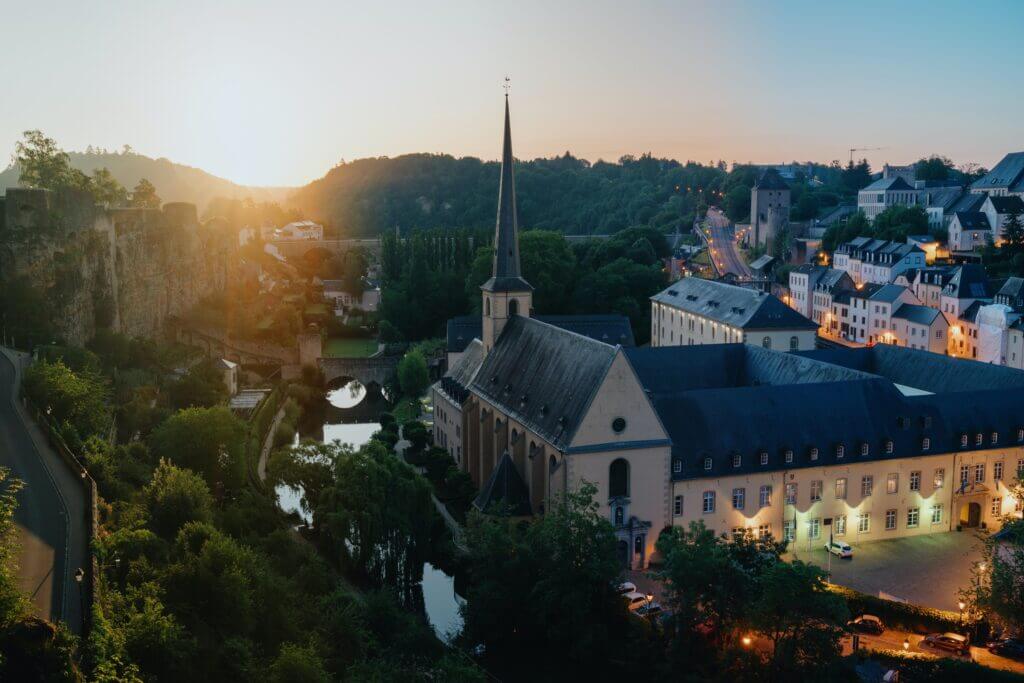
But first, here are the answers to some FAQs. There’ll be more information about a lot of these things throughout the article, but let’s just take a look at the basics.
- Why is Luxembourg so rich? Despite being a tiny nation, Luxembourg made its wealth through several means. During the 19th century, Luxembourg climbed its way to the top to become one of Europe’s biggest steel producers. These days, it’s a hub for large private banking, making finance its biggest sector.
- What is the capital of Luxembourg? This one’s easy. Luxembourg!
- Where is Luxembourg located? Europe, wedged underneath Belgium and sandwiched between France and Germany.
- What is the Luxembourg language? There are three official languages in Luxembourg: French, German, and the national language of Luxembourgish. Read on for more details!
So, geography aside, what do you need to know about Europe’s tiny powerhouse nation? There’s plenty to discuss, so let’s jump straight in.
Table of Contents
1. The capital city
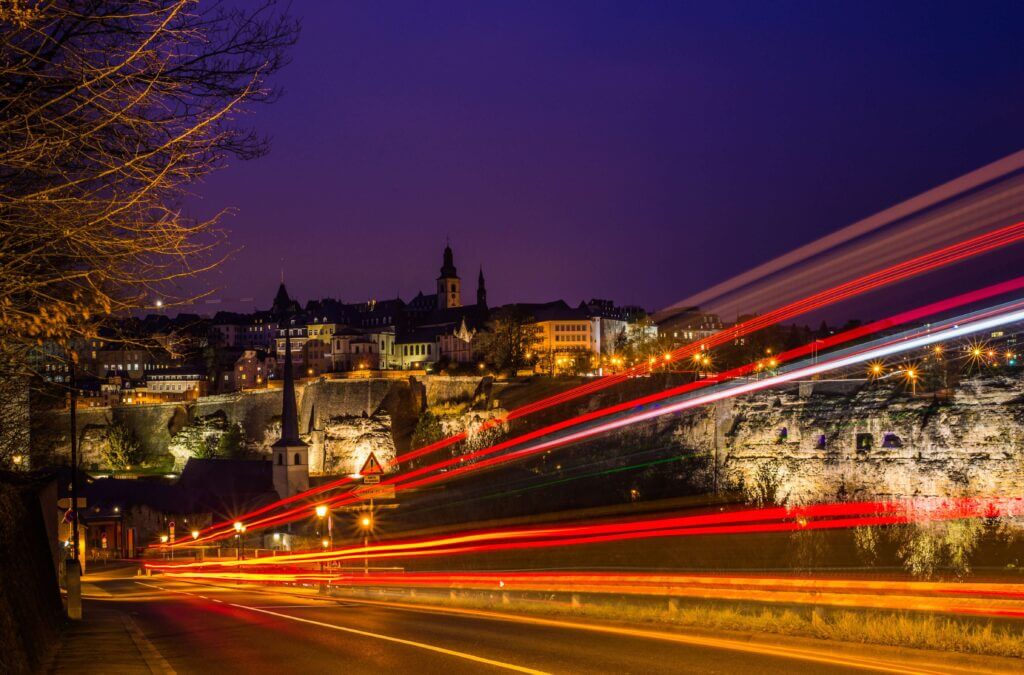
Luxembourg is famous for its capital city which shares the nation’s name. The City of Luxembourg has a little bit of everything, and for such a small country, it’s jam-packed with a history spanning more than a thousand years.
Luxembourg’s bastions and historic city center are included in UNESCO’s World Heritage Site list since 1994, and I think this city is best absorbed on foot.
The Wenzel Trail takes you through Luxembourg’s historic natural and urban history, encompassing both the upper and lower ends of the city. Expect views of famous ramparts, the Wenceslas ring wall, and the Alzette valley.
Pro Tip: If walking isn’t your thing, since March 2020, public transport in Luxembourg is free of charge. Yes, you can get a bus, train, or tram within Luxembourg for free (as long as you don’t leave the country or book a first-class ticket. I’m sure you’ll manage fine without that, though!).
2. Outdoor activities

Luxembourg is famous for its tranquil scenery, which makes it an ideal place to hike or go for a bike ride. Escape the city (it doesn’t take long, after all) and delve into some of Luxembourg’s many hiking and biking trails.
Size is not always indicative of variety. I can especially recommend a bike ride or hike through the Ardennes, or a trip to the Land of the Red Rocks in the south. The Mullerthal and Moselle regions are also fantastic.
3. Being rich
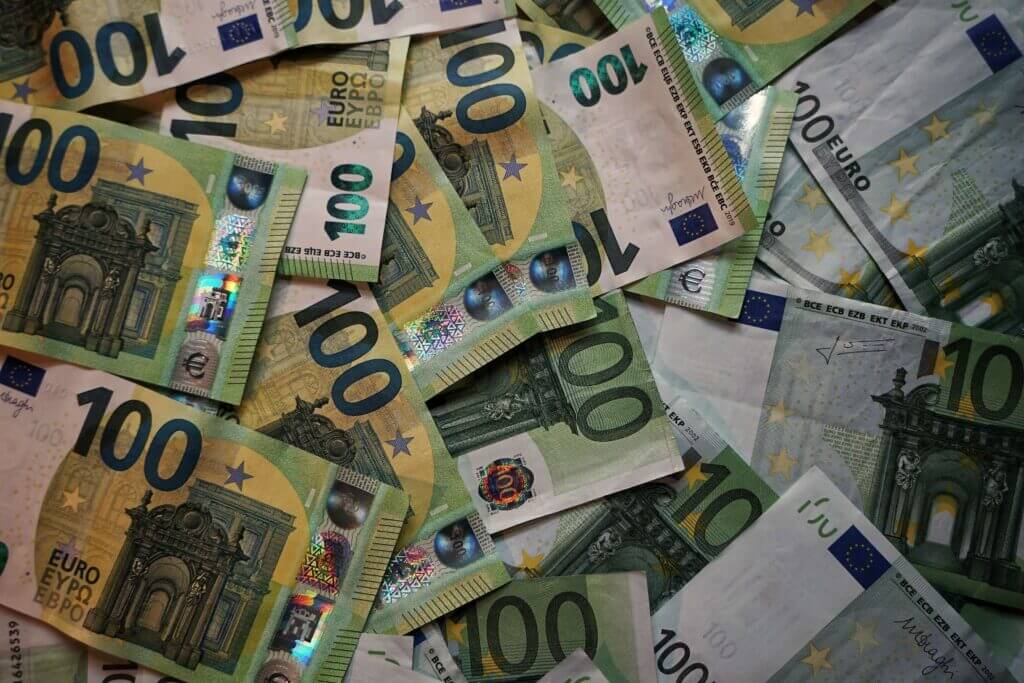
Luxembourg is famous for being one of the richest countries in the world. Most people only ever hear about Luxembourg because of its status as a tax haven, but how this tiny landlocked nation because so wealthy is actually fascinating.
Luxembourg is a nation jam-packed with banks. Banks located in Luxembourg have a high level of international clients, which means that they receive large sums of cash from all over the world.
There are 147 banks in Luxembourg, and around 120 of them are branches or subsidiaries of foreign banks.
4. A varied population
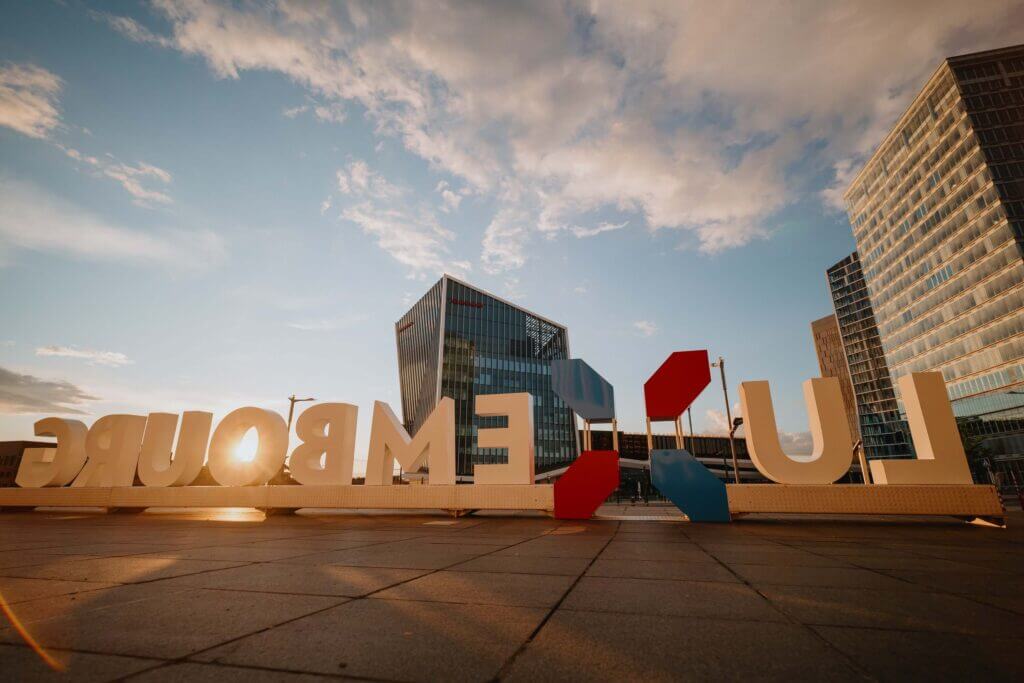
Luxembourg is famous for having a small but varied population. 637,925 (September 2021) people call Luxembourg home, and just under half of them are foreign nationals. Interestingly, the largest group of foreign inhabitants in Luxembourg are Portuguese.
Unsurprisingly, the other large groups of foreign inhabitants come from the surrounding area; France, Italy, Belgium, Germany, and other European nations.
A mere 2.3% of Luxembourg’s population are from non-EU nations, which of course now includes people from the U.K.
5. The only Grand Duchy in the world
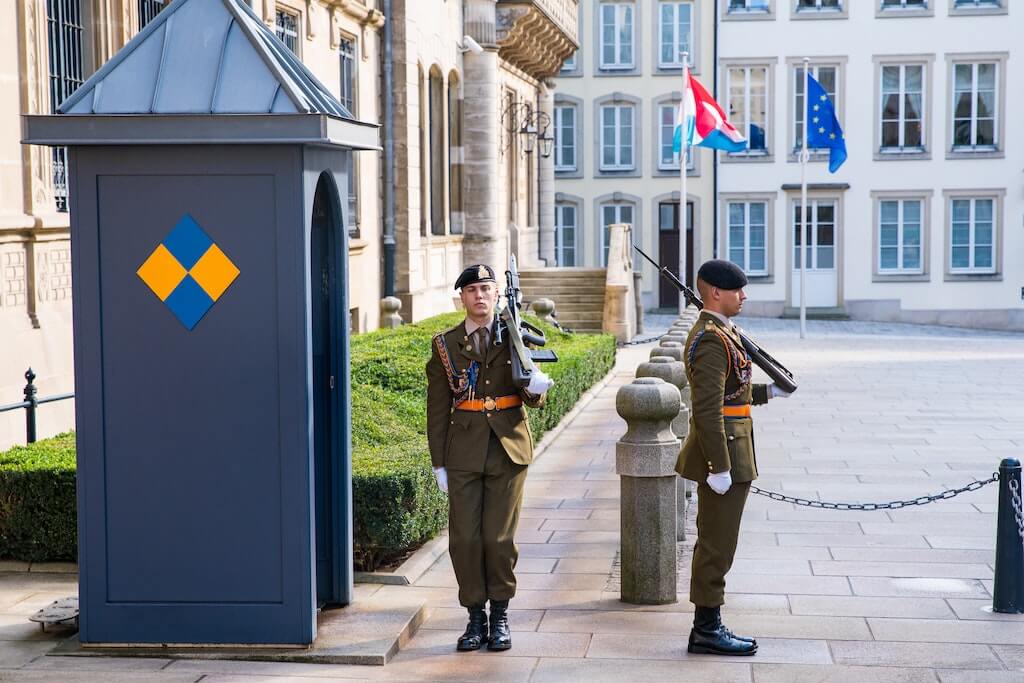
Luxembourg is known for being the only Grand Duchy in the world. Which sounds great, but as they’re the only ones, you’d be forgiven for not knowing what that really means.
Basically, instead of a King or a Queen, Luxembourg’s official head of state is a Grand Duke or Duchess.
The current Grand Duke of Luxembourg is Henri Albert Gabriel Félix Marie Guillaume. His wife is the Grand Duchess of Luxembourg, and thankfully she has a much easier name: Maria Teresa Mestre y Batista.
6. Liberal attitudes

Despite its riches and fancy-pants titles, Luxembourg is famous for having a very open society.
That doesn’t mean that Luxembourg has an “anything-goes” attitude, but rather, “controversial” topics such as same-sex marriage, marijuana legalization, and euthanasia are accepted in Luxembourg.
In fact, after the 2018 general election, Xavier Bettel became the first openly gay Prime Minister in the world to be re-elected for a second term. He married his husband in 2015, which was the same year same-sex marriage became legal in Luxembourg.
Interestingly, an ongoing debate in Luxembourg involves the nation becoming the first country in the EU to make cannabis legal. Possession and use of the drug have been decriminalized since 2001. The new policy, said to begin in 2021/22, is in opposition to countries such as the Netherlands, which have a “tolerance policy”.
7. Being expensive (sometimes)
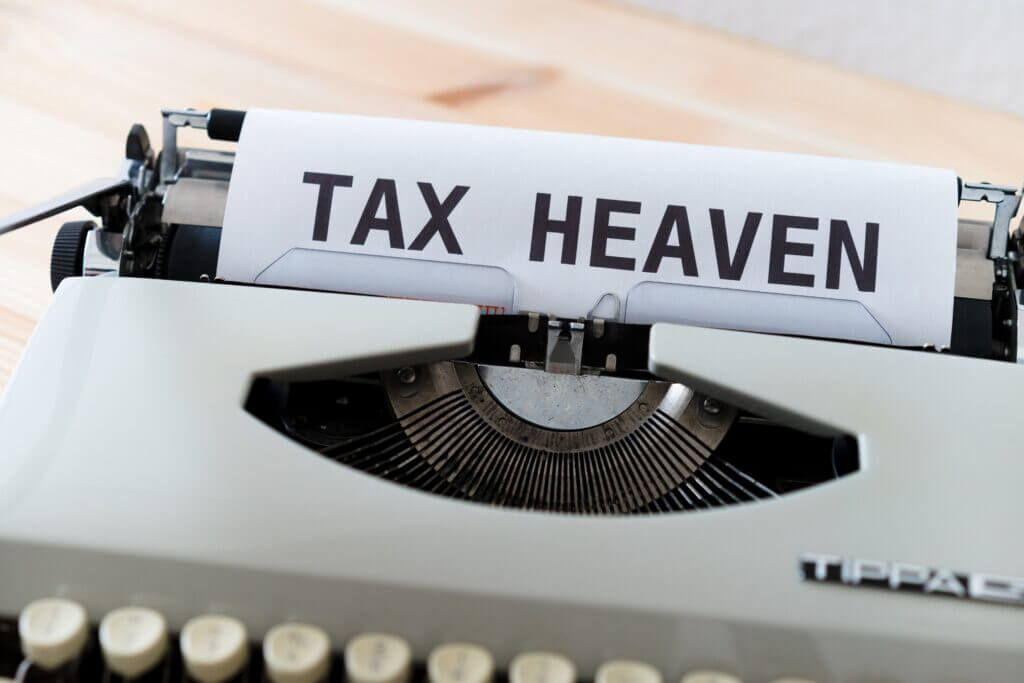
As Luxembourg is the second-richest nation in the world, you might assume that it’s awfully expensive to visit and live there. But that’s only half the story. Luxembourg is famous for being the home of the rich, but actually, living costs are competitive.
In regards to its European neighbors, Luxembourg is 19% and 17% more expensive to live in than Belgium and Germany respectively.
That said, living costs are almost the same as in the U.K and France. More broadly, Luxembourg is 7.72% more expensive than Los Angeles, but rent in Luxembourg is, on average, 13.19% lower than in LA.
Tourist attractions average out at about €7 or €8, and contrary to popular belief, there are reasonably priced youth hostels in Luxembourg, so your visit need not cost you your life’s savings!
8. One of the safest countries in the world
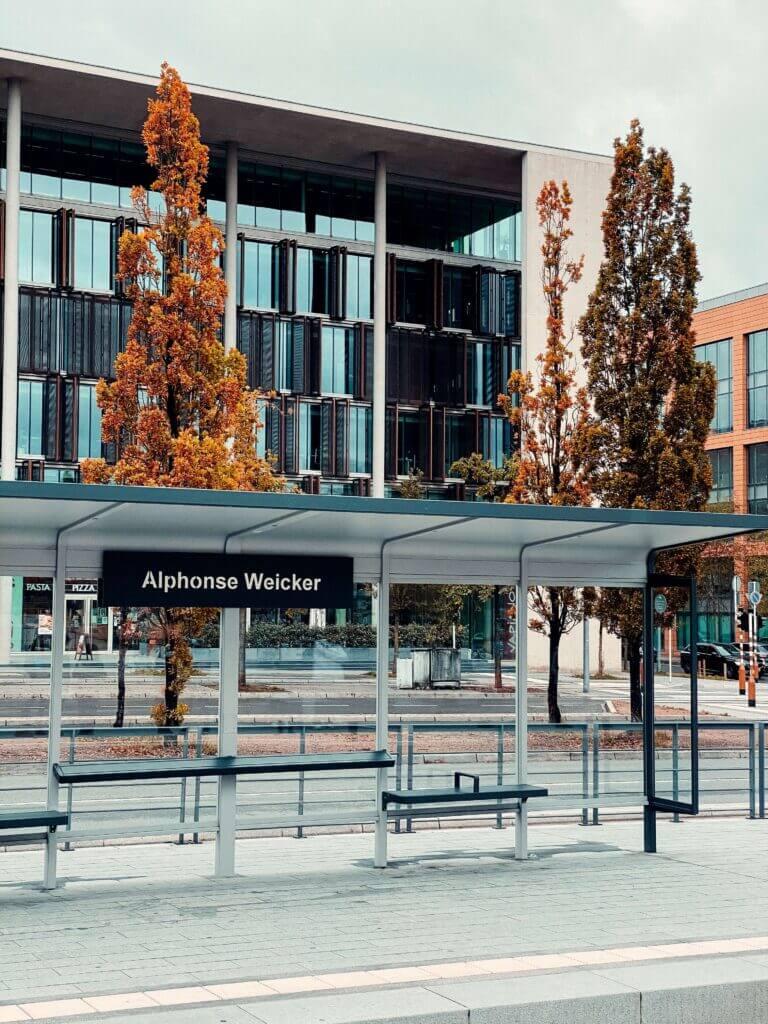
Luxembourg is famous for being one of the safest countries in the world. It’s the safest country in Europe and only comes in second in global rankings to Singapore.
Aside from petty theft (most of which occurs at Luxembourg’s largest train station, La Gare) you don’t need to worry about the worst happening while you’re visiting.
Obviously, the same rules apply to residents and tourists as in many other European countries: don’t leave your valuables in plain sight and be careful using credit cards!
9. Schueberfouer
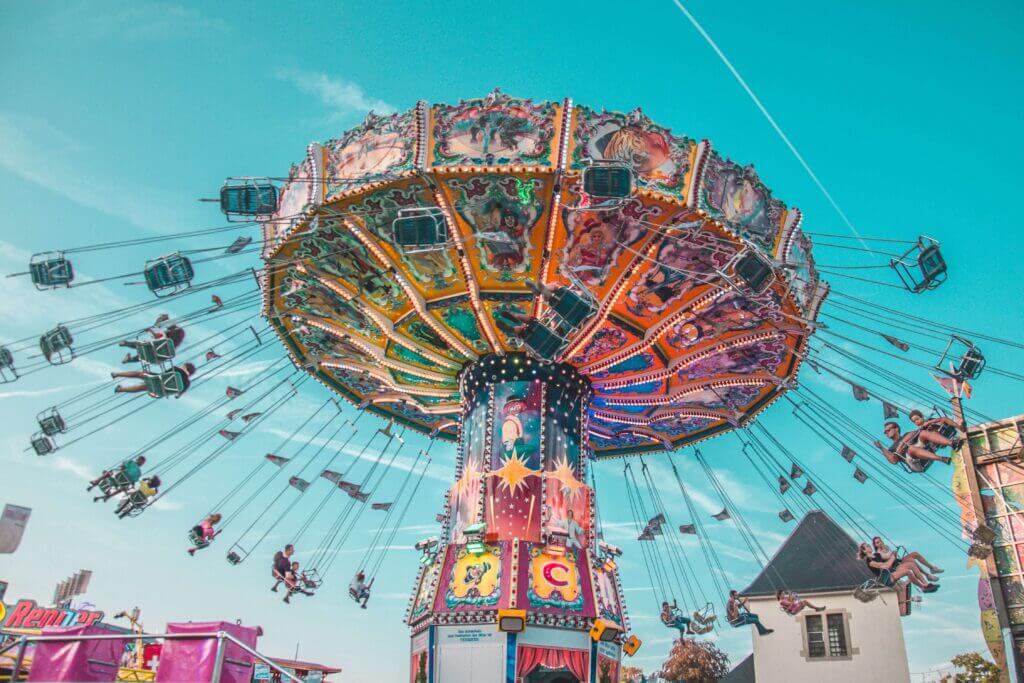
Even bank managers have to let their hair down once in a while, so it comes as no surprise that Luxembourg is famous for its unique summer festival, Schueberfouer.
It’s been celebrated since 1340, when the Count of Luxembourg, John the Blind, founded it. Schueberfouer was added to the Luxembourgish calendar to celebrate St. Bartholomew, hence why it begins on 24 August (St. Bartholomew’s Day) and runs until 11 September.
Essentially, Schueberfouer is a fun fair and street food market. There’s a giant Ferris wheel, fairground rides, and even an adorable sheep mascot called “Lämmy”. But don’t be fooled, this isn’t just for kids.
The fair is open until 2 o’clock in the morning and you can sample everything from Luxembourg’s best wines (more on them later) and Luxembourg’s iconic snack food Gromperekichelcher (potato pancakes, we’ll talk about them next!).
10. Gromperekichelcher
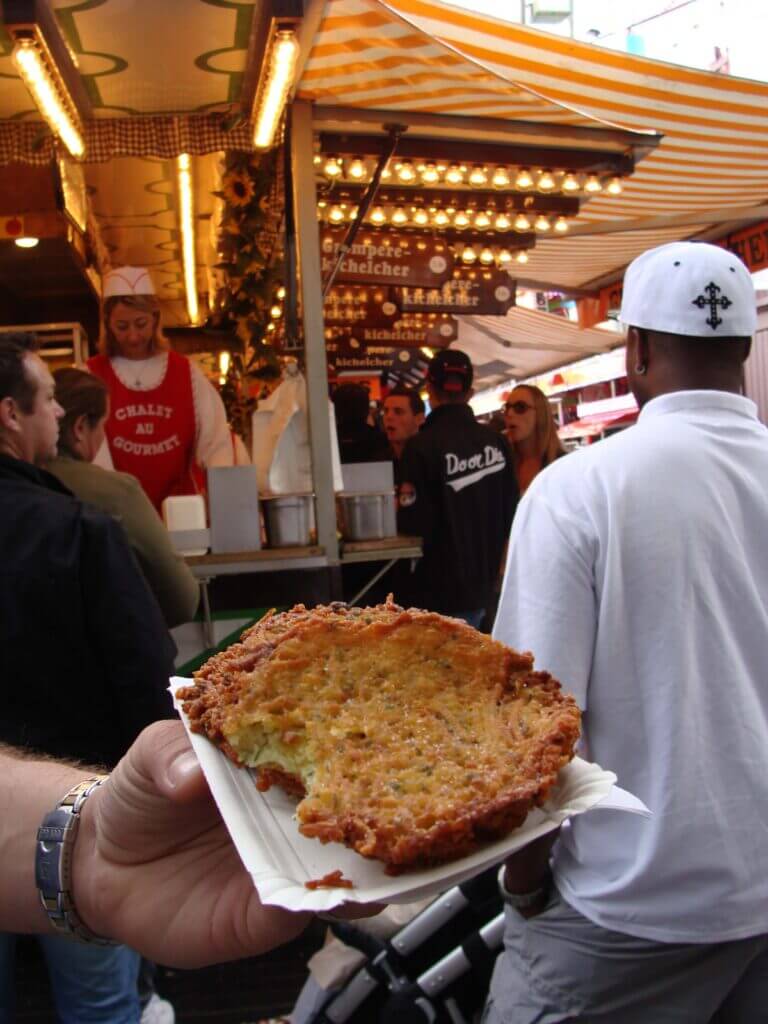
Luxembourg is known for its blended European cuisine. If Luxembourg’s cuisine was a recipe, it’d have a sprinkling of French and a spoonful of German, garnished with Italian and Portuguese.
This plethora of flavors is innovative, unique, and delicious, but sometimes simplicity reigns supreme. The humble Gromperekichelcher is a testament to that.
So what are Gromperekichelcher? Basically, potato fritters, made of grated potato, eggs, flour, and onions. These ingredients then get fried in hot oil and served with apple compote (don’t be one of those people that reaches for ketchup!).
Gromperekichelcher are traditionally served for holidays such as Christmas or at the Schueberfouer fair, making them a nostalgic Luxembourgish side dish.
11. Ideal geography

Luxembourg is famous for being confused with France, Germany, and Belgium. Obviously, you know better, of course, but lots of people think it might be a place within another country.
And we can sort of see why: it’s so close to its neighbors that getting around is so easy, which is great news if you love European vacations.
True story: Some years ago, I woke up in Luxembourg, got a haircut and had lunch in France, went shopping in Germany, and was back in Luxembourg before evening fell. And it was amazing.
Border hopping is a great way to spend time in Luxembourg; I like to think of it as the portal to Central Europe. You can cram so much in and there’s barely any planning necessary. Just don’t forget Luxembourg is its own country!
12. Luxembourgish

All languages have their charm, and Luxembourg is famous for having quite a unique language. Sure, nearly everyone will speak French, German or English on top of Luxembourgish, but it’s always fun to learn new phrases if you’re visiting.
It’s true that Luxembourgish is a blend of French and German, though more German in essence. Some words you’ll recognize: “thank you” in Luxembourgish is “merci”, so at least you can be polite when you visit.
As always, being insulting is one of the most amusing ways to learn languages so here’s a tame one: “du bass domm wei Stréi” – you’re as stupid as hay.
And if you’re really, really cross, use this archaic Luxembourgish expression with discretion: Leck d’Kaz do wou se keng Buuschten huet! – “Lick where the cat doesn’t have any hair”. (You’ve got to admit, there’s no way of replying to that. Definite mic-drop!)
13. Modern and ancient history
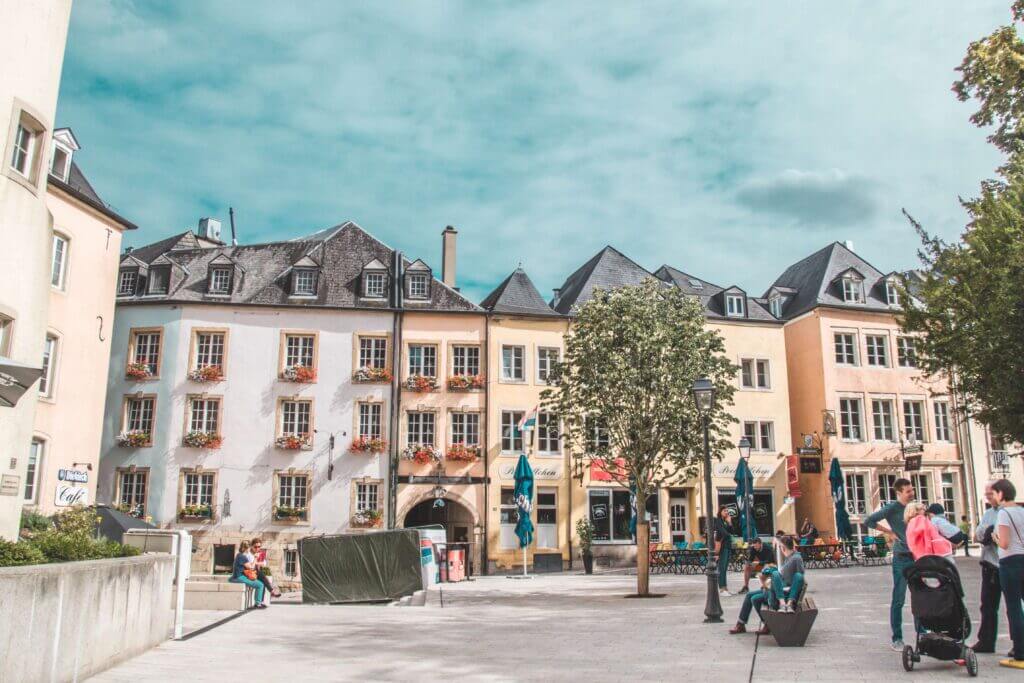
Luxembourg is famous for being one of the founding nations of the United Nations, but its past stretches back much further than that.
The earliest human remains found in Luxembourg date back to 5140 BCE. Unfortunately, there’s very little evidence to suggest exactly who these people were, but luckily, plenty is known about the people who followed.
Luxembourg was inhabited by Belgic tribes, Romans, and Franks – all of whom left their distinctive mark upon the country. Luxembourg was ruled by France at various times and famously, Napoleon III almost secured a deal to buy it for 5 million florins.
In 1867, Luxembourg became an independent nation but was annexed by Germany during the Second World War.
So, regardless of your era of interest, you’re bound to find something to explore in Luxembourg’s compact but fascinating history!
14. Fine wines
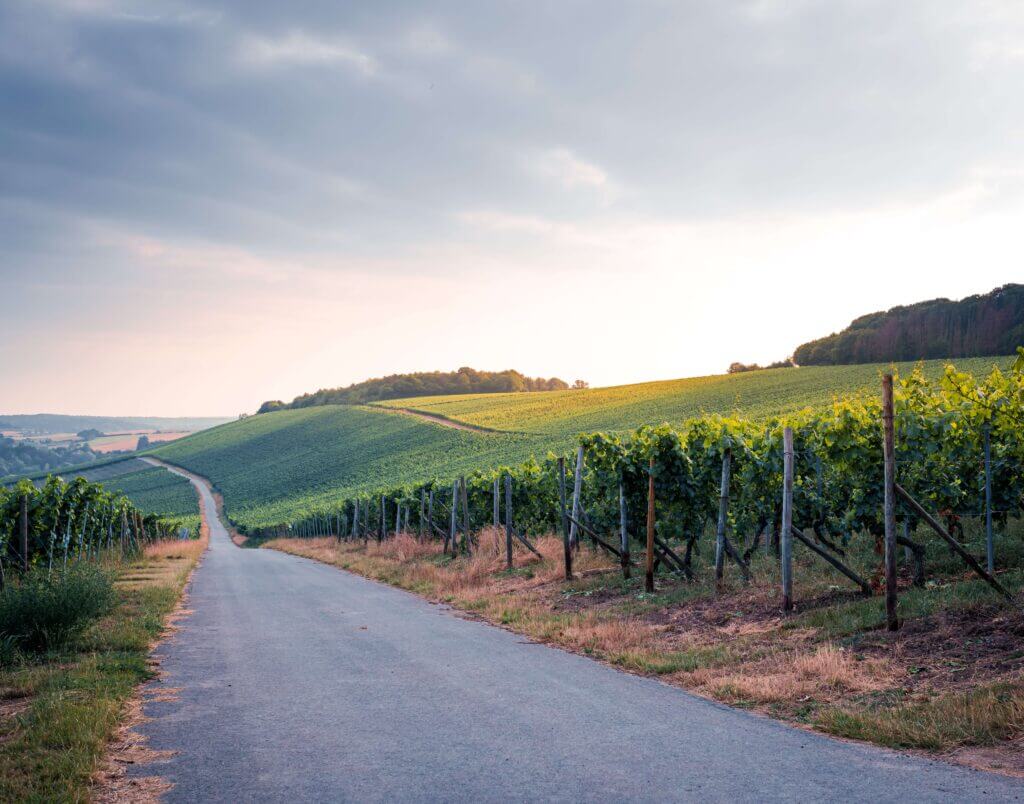
Excellent news for lovers of all things grape beverage-related – Luxembourg is known for having award-winning wines! If there was a wine Olympics, Luxembourg would be giving other wine nations a run for their money (which, they do anyway, economically speaking. Ha-ha).
Luxembourg’s most famous award-winning wine is called Crémant de Luxembourg. It’s the Luxembourgish take on Champagne and can be as cheap as €14 a bottle. It launched in 1991 as a classy but delicious alternative to champagne and was an overnight success.
The restaurant with the world’s largest wine list is also in Luxembourg, at Restaurant Chiggeri, where you can choose from more than 2,200 different wines!
At the 2015 Crémant awards (yes, it’s a real thing), Luxembourg came in second to Burgundy, France for a total number of awards, but Luxembourg got the most gold medals for its wines – a massive 22 in total. Who doesn’t love a bit of neighborly rivalry?
15. Most cars per capita
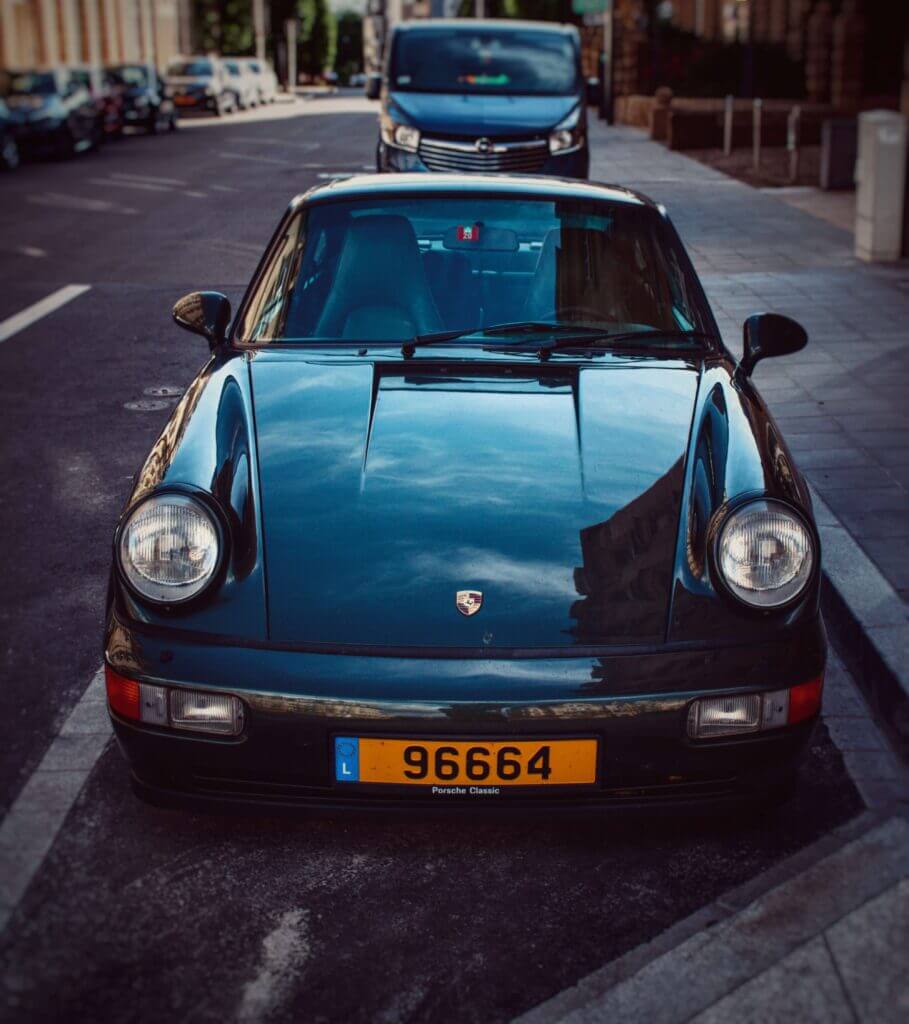
Luxembourg is famous for being the land of the rich, and even though the inhabitants are spoiled rotten with free public transport, Luxembourg still holds the title of highest car rate ownership. The average is 647 car owners per every 1,000 inhabitants.
Bear in mind though, that almost half of the people who work in Luxembourg live in neighboring countries, so they wouldn’t totally benefit from the generous national transport system.
In case you’re wondering, the most common car brand in Luxembourg is Volkswagen, closely followed by PSA and BMW. Well, you wouldn’t expect anything less, would you?
16. Underground tunnels
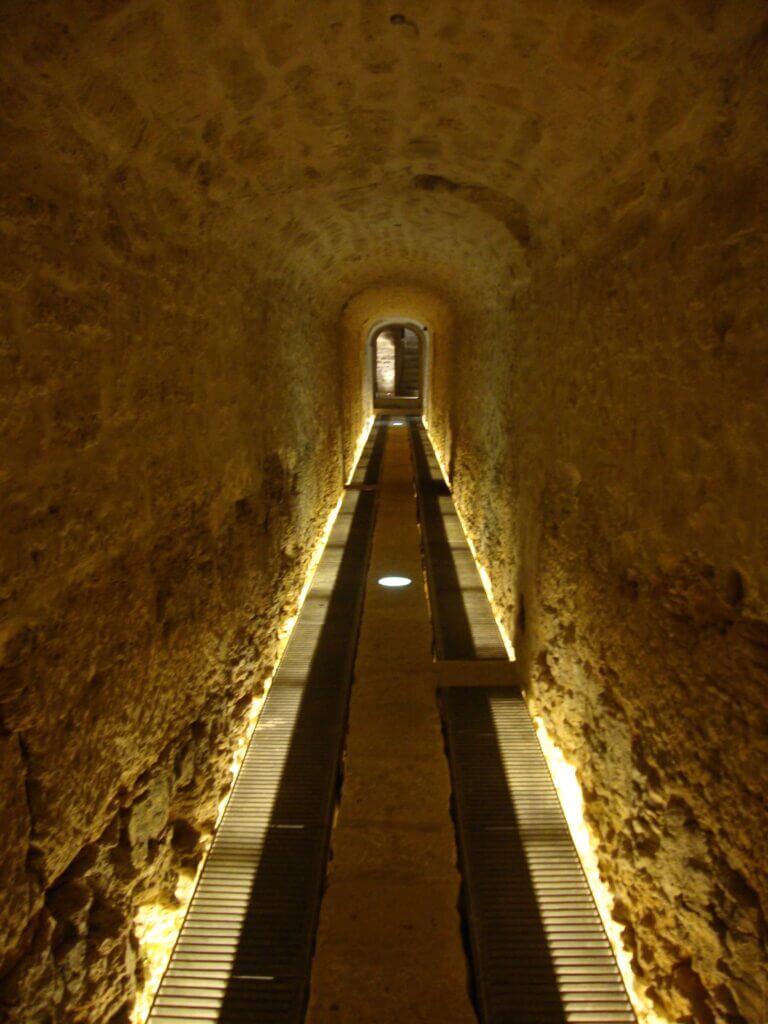
Luxembourg is famous for its beautiful scenery and stunning architecture, but there’s a literal underbelly to explore too. There is a 17km long tunnel network buried beneath the capital city, and it’s one of Luxembourg’s most famous UNESCO World Heritage Sites.
The tunnels and fortresses that lie mostly dormant under bankers and wealthy business people were originally built in the 17th century. The network is so deep and vast that it’s actually earned Luxembourg a fancy nickname: “Gibraltar of The North”.
You can explore Luxembourg’s tunnels from March until September, but only as part of a guided tour for your health and safety.
17. High-quality healthcare

It almost goes without saying that Luxembourg is famous for having a reputation where you can enjoy some of the highest quality of life in the world. But the health care system, in particular, is revered as one of the world’s best.
A third of Luxembourg’s total revenue is spent on universal health care and social services. The health care system in Luxembourg is one of the best state-funded in the world and operates under an insurance-based system.
Most check-ups with a GP or MD are covered by the state, as are pregnancy, hospitalization, and prescriptions. Vulnerable people such as the elderly or chronically sick do not pay, and neither do students or the unemployed.
Also, children get free medical care until the age of 27!
18. Pretzel Sunday

Are roses and chocolates getting boring? Why not celebrate Valentine’s Day the Luxembourgish way?!
Luxembourg is famous for its holiday Bretzelsonndeg (Pretzel Sunday), and believe it or not, it’s all about expressing your love. For another person, that is, not pretzels.
Bretzelsonndeg occurs on the 4th Sunday of Lent every year, and it’s an opportunity for hopeless romantics to gift their partner a pretzel. Not just any pretzel, though.
Luxembourgish pretzels are sweet rather than savory and contain fondant icing and almonds. The shape of the pretzel is also significant, they symbolize two lovers, arm in arm. Aww.
Traditionally, there’s also a parade where the Pretzel Queen hands out pastries to the crowd, mostly full of sugar-craving kids. Keep an eye out for her if you’re in Luxembourg for Easter!
19. Grand Duchess Charlotte

Luxembourg is famous for its political history, and to this day, one of the greatest symbols of Luxembourgish freedom and social democracy is the former Grand Duchess Charlotte of Luxembourg.
She reigned from 1919-1964 but was never destined to rule Luxembourg at all. Her sister, Marie-Adélaïde abdicated in 1919 after it surfaced that she supported Germany during WWI.
Grand Duchess Charlotte, in her wisdom, gave the decision to her people: should she take over, or should Luxembourg become a republic? Overwhelmingly, the people said “Charlotte”. Charlotte and her family fled Luxembourg during WWI, but she gave frequent broadcasts on the radio to encourage her citizens who still revere her.
During her reign, the constitution of Luxembourg was rewritten twice, new social democratic policies were introduced, and Luxembourg helped found NATO.
20. EU institutions

The European Union has various headquarters all over Europe, most notably in Belgium. However, as a close neighbor, it figures that Luxembourg is famous for accommodating some of the EU’s most important institutions.
Some of the most notable European Union institutions and agencies include the Court of Justice of the European Union, Translation Centre, and Consumers, Health, Agriculture and Food Executive Agency.
21. National Day

As with many countries around the world, Luxembourg is famous for having a National Day. Unlike other countries, Luxembourg’s National Day does not celebrate the reigning monarch’s birthday. The story actually begins with Grand Duchess Charlotte, so it’s lucky we’ve already introduced her.
Grand Duchess Charlotte of Luxembourg’s birthday was on 23 January. As most residents of the Northern Hemisphere will attest, January is not favorable if you plan to have an outdoor party. So what did they do? Moved it to June instead! So June 23 is the official National Day of Luxembourg.
However, it gets a bit more complicated. National Day celebrations in Luxembourg occur the day before, so, on 22 June. It’s confusing, isn’t it? That said, it’s supposed to be a fantastic day. Usually, there’s a torchlight procession, a changing of the guards, and a fireworks display from Adolphe Bridge.
22. Echternach Dancing Procession

Luxembourg is famous for many of its unique traditions, and this one is about as unique as it gets. Every Whit Tuesday, in the district of Echternach, around 10,000 people gather to participate in Europe’s last traditional dancing procession.
Not just any dancing procession, though. The dance itself involves a hopping procession and honors Luxembourg’s patron saint, Willibrord. In 2010, the “hopping procession of Echternach” was added to the UNESCO list of Intangible Cultural Heritage of Humanity.
It’s estimated the Echternach Hopping Procession draws crowds of around 40,000 from all over the world. It is a Roman Catholic Tradition and attending the dance procession has become a kind of act of pilgrimage.
23. Castles

Good news, castle lovers! Luxembourg is famous for being home to over 50 castles begging you to explore them. Some have been converted to fancy hotels or restaurants, whereas others are mere crumbling ruins. But they all have one thing in common: they’re all worth a visit.
Take the Vianden Castle for instance. It’s a splendid example of Romanesque and Gothic residences, and what you see today stands on the foundations of a Roman Castle. It was built sometime between the 11th and 14th centuries and has a modern, interactive visitor center for your perusal.
Other castles to keep an eye out for in Luxembourg include the Esch-sur-Sûre Castle, Grand Ducal Castle, and Ansembourg Castle.
24. Luxembourg’s flag

Luxembourg is famous for its tricolor flag which often gets confused with the flag of the Netherlands. What many people don’t know is that Luxembourg’s flag was only officially adopted in 1972!
Until 1830, there was no single flag used to represent Luxembourg. The banner of red, white, and pale blue represented the Dukes, but not the people. It’s believed that between 1845 and 1848 a flag similar to the one we recognize today was introduced, but it took more than 100 years before it was officially chosen.
The three colors depicted on Luxembourg’s flag go back to the Ducal coat of arms. Even though Luxembourg was a separate country under the protection of The Netherlands, there is no relationship between the two!

And there you have it! 24 things Luxembourg is known and famous for. Did anything surprise you? Or have we forgotten something? Let us know in the comments below!
And while you’re interested in Central Europe, why not also read:
- 30 Things France is Known and Famous For
- 25 Things Belgium is Known and Famous For
- 28 Things Germany is Known and Famous For
Things Luxembourg is famous for – Pin it!



I love your country
Luxembourg is a lovely country to visit, I which to travel to see the facilities highlighted. I love this country so much
Gromperekichelcher, sure sounds like a “Germanish” potato pancake. The ingredients are exactly the same, shredded potatoes? Yup.
Even the way they are served with applesauce, you will find many restaurants in Milwaukee, WI making potato pancakes and applesauce is offered.
Along with real Maple Syrup!
Hi Jeff, that sounds absolutely delicious! Fascinating to see how far-spread these recipes end up. I’ll add potato fritters with apple sauce / maple syrup in Wisconsin to my global food bucket list!
Luxembourg is the great country.l love Luxembourg peoples.
Is a travel visa required for non-EU visitors to Luxembourg, and if so, how long is the visa valid?
Can anyone buy/rent residential property in Luxembourg? If so, what is the best means to view availability?
Great country!
Am a farmer,i work with the local government in my community.i and my co-workers would love to visit one of the farms in Luxemboug…i dont mind if you can recomend any to me.
Hope to hear from you.
so nice country, top!